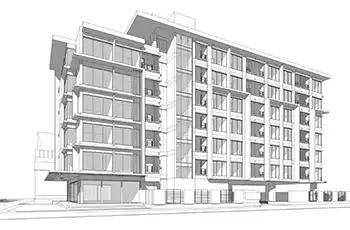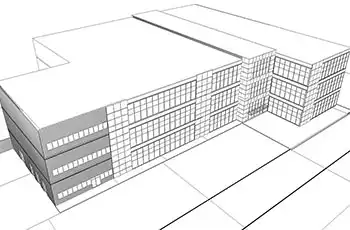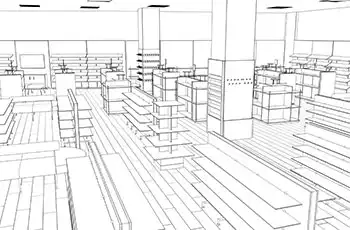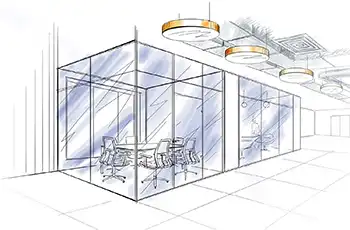
What Is Commercial Construction?
What is the meaning of commercial construction?
Commercial construction refers to the specialized branch of the construction industry that focuses on the planning, design, and construction of structures intended for business or commercial purposes. This includes a wide range of projects, such as office buildings, retail centers, industrial facilities, healthcare institutions, and apartment complexes.
The construction process extends beyond erecting physical structures; it includes comprehensive project management, adherence to industry regulations, and a commitment to delivering high-quality, functional spaces that meet the unique needs of businesses and industries.
Successful commercial construction projects require strategic planning, effective execution, clear communication, and strong collaboration between the construction company, project managers, architects, inspectors, and developers.
What is an example of commercial building construction?
 Examples of commercial building construction projects include constructing or remodeling retail buildings, apartment complexes, warehouse structures, hotels, healthcare facilities, and office complexes.
Examples of commercial building construction projects include constructing or remodeling retail buildings, apartment complexes, warehouse structures, hotels, healthcare facilities, and office complexes.
A complicated project like constructing a modern office complex involves careful planning, architectural design, and construction processes to create a functional workspace. The construction team navigates complexities such as utility installations, structural considerations, and adherence to building codes.
The resulting office building provides a professional environment equipped with cutting-edge facilities that meet the diverse needs of businesses. From foundation to finishing touches, the construction of office, retail, warehouse, or other commercial spaces showcases the integration of design aesthetics, technological advancements, and practical functionality.
What are the key steps in a commercial construction project?
The key steps in a commercial construction project involve an organized process that includes careful planning and the mobilization of resources that ultimately lead to successful construction.
1) Planning and Design
The key planning and design steps in a construction project encompass meticulous blueprint creation, comprehensive site assessment, and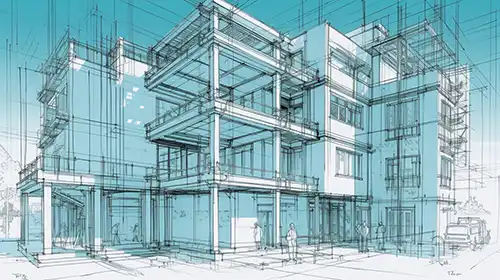 concept development. These crucial stages lay the groundwork for a successful construction project.
concept development. These crucial stages lay the groundwork for a successful construction project.
2) Permitting
Obtain necessary permits and approvals from relevant authorities to ensure compliance with local building codes and regulations.
(continued below)
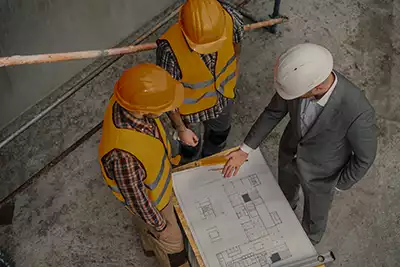
Contact Us Today!
The Key Steps in a Commercial Construction Project? (continued)
3) Resource Mobilization
Assemble and mobilize the required resources, including labor, materials, and equipment, to commence the construction phase.
4) Construction Initiation
Construction initiation in a commercial project signifies the official start of building activities after meticulous planning, design finalization, and obtaining necessary permits to ensure regulatory compliance.
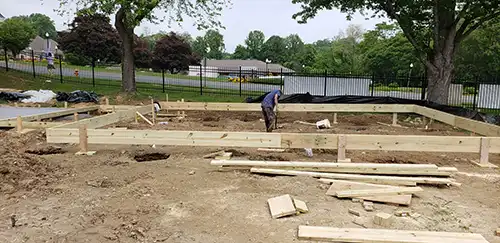
5) Site Preparation
Clear and prepare the construction site, ensuring a secure and accessible work environment. This can include clearing the raw land in the case of new construction or demolishing the existing interior in the case of commercial remodeling.
6) Foundation and Structural Framing
Lay the foundation and frame the structure, establishing the fundamental elements of the building.
7) Utility Integration
Install essential utilities and systems, including plumbing, electrical, and HVAC.
8) Interior Construction
Develop interior spaces, incorporating fixtures, finishes, and other design elements.
9) Quality Assurance
Implement quality control measures to ensure construction meets predefined standards.
10) Inspections
Conduct thorough inspections at various stages to guarantee compliance and safety. This step is performed by both the construction manager and the local building inspector.
11) Final Touches
Complete finishing touches, addressing any remaining details before project completion.
12) Project Completion
Achieve project completion, signaling the successful realization of the commercial construction endeavor.
Effective project management, collaboration among stakeholders, and adherence to safety standards are crucial throughout these steps to ensure a successful and efficient commercial construction project.
What Factors Impact the Cost of Commercial Construction?
Several factors significantly influence the cost of commercial construction.
1) Project Size and Complexity
Larger and more intricate projects generally entail higher costs due to increased materials, labor, and management requirements.
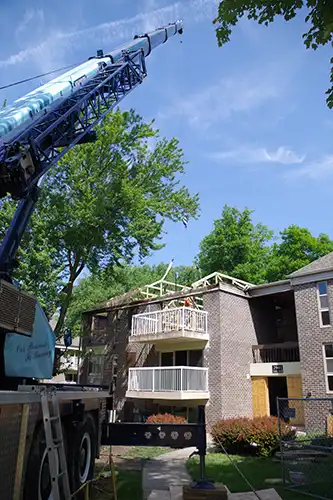 2) Location
2) Location
Construction costs vary regionally due to differences in labor rates, material availability, and local building codes.
3) Design Specifications
The complexity and uniqueness of design elements can impact costs, especially if specialized materials or skilled labor are required.
4) Site Conditions
The condition of the construction site, including topography and soil quality, can affect foundation requirements and overall construction costs.
5) Materials and Technology
Fluctuations in material prices and the use of advanced technologies can influence costs. Sustainable or specialized materials may also incur higher expenses.
6) Regulatory Requirements
Compliance with building codes, zoning regulations, and other legal requirements can contribute to costs, particularly if modifications are needed.
7) Timeline and Schedule
Accelerated timelines or delays may impact costs due to overtime expenses, extended project durations, or potential penalties for delays.
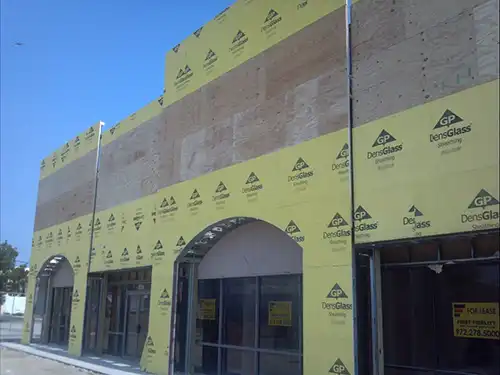 8) Contractor and Subcontractor Selection
8) Contractor and Subcontractor Selection
The choice of construction professionals, including contractors and subcontractors, can impact costs based on their experience, expertise, and rates.
9) Economic Conditions
Economic factors, such as inflation and market demand for construction services, can influence material and labor costs.
10) Project Management
Efficient project management can optimize resources and reduce costs, while poor management may lead to delays and increased expenditures.
Considering and managing these factors is essential for accurate budgeting and successful commercial construction projects.


